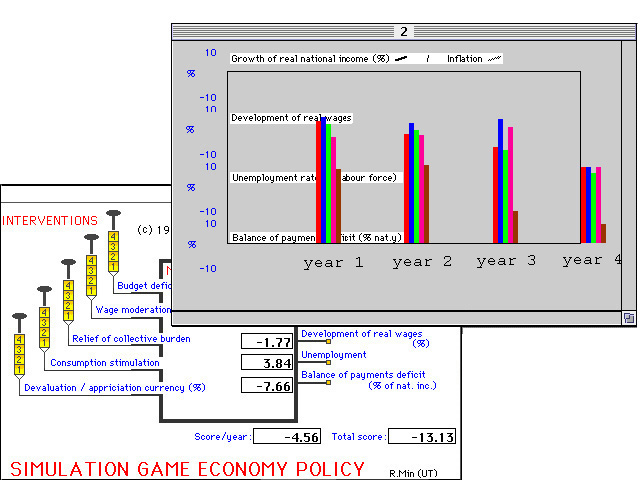Toegepaste Onderwijskunde - Universiteit Twente

Tele-course
Technology and Simulation('T+S')
(197204)
(based on the concept of parallelism and the PI theory for designing open web environments)
== learn to build your own learning enviroments with you own applets ==
(build in Java with the templates of the javaTHESIS system)
New: the results of 2001/2002
Old: the results of 2000/2001
the results of 1999/2000
the results of 1998/1999
and the results of 1997/1998.

Here you see a simulator about the Dutch economy. The user
can learn how an small open economy runs.
